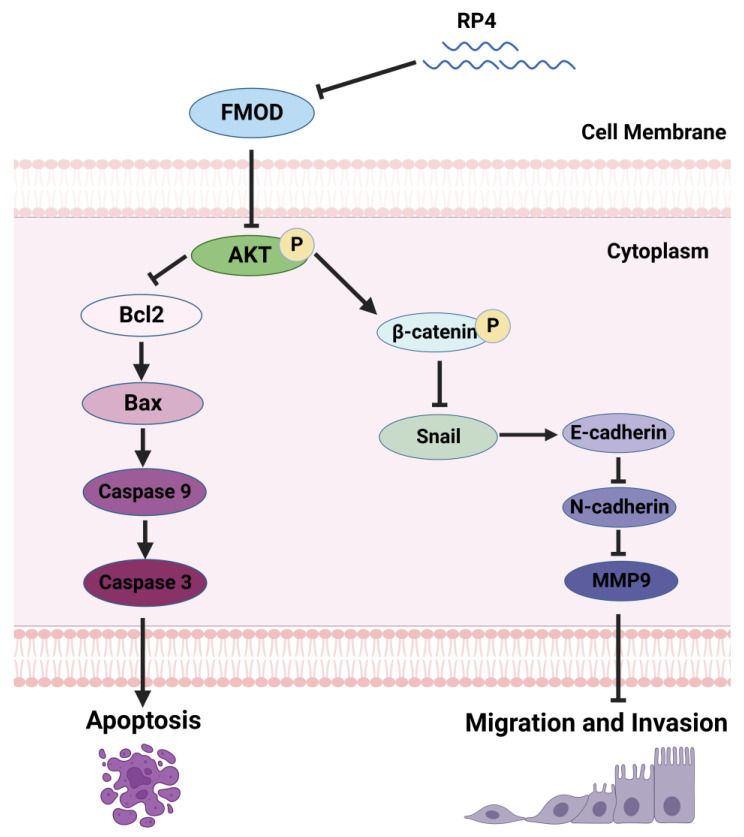Figure 8.
RP4 induces cell apoptosis and inhibits cancer metastasis via AKT and Wnt/β-catenin signaling pathways. RP4 was ingested by colorectal cancer cells and blocked FMOD function, resulting in inhibiting the phosphorylation of AKT and further induing the activation of caspase 9 and phosphorylation of β-catenin. As apoptosis initiator, caspase 9 activated the cleavage of caspase 3, which directly promoted cell apoptosis. In the canonical Wnt/β-catenin pathway, β-catenin phosphorylation led to degradation of β-catenin and reduced the accumulation of β-catenin in the cell nucleus. Thus, β-catenin phosphorylation indirectly inhibited MMP9 and cyclin D1 expression. In addition, blocked FMOD inhibited the phosphorylation of Erk and snail expression. Therefore, down-regulation of MMP9, cyclin D1, and snail repress cell migration or invasion by inhibiting EMT as well as down-regulation of N-cadherin and vimentin.

